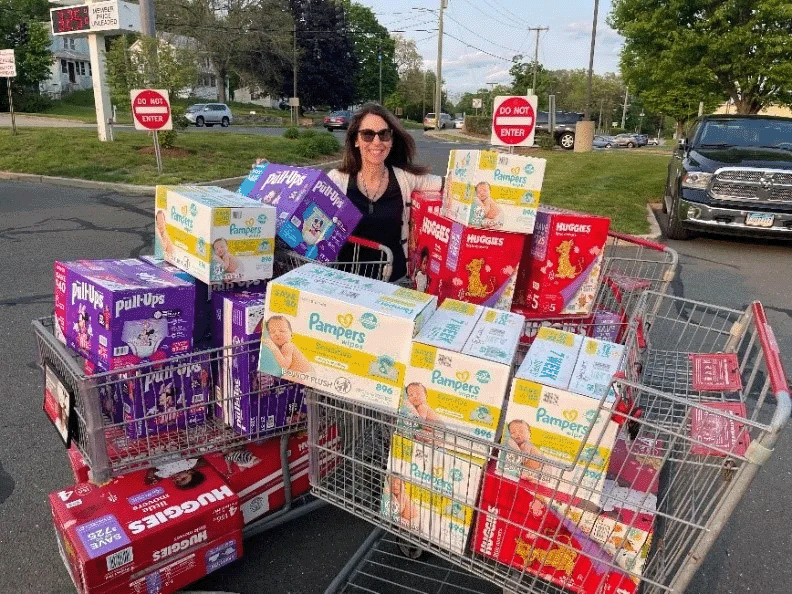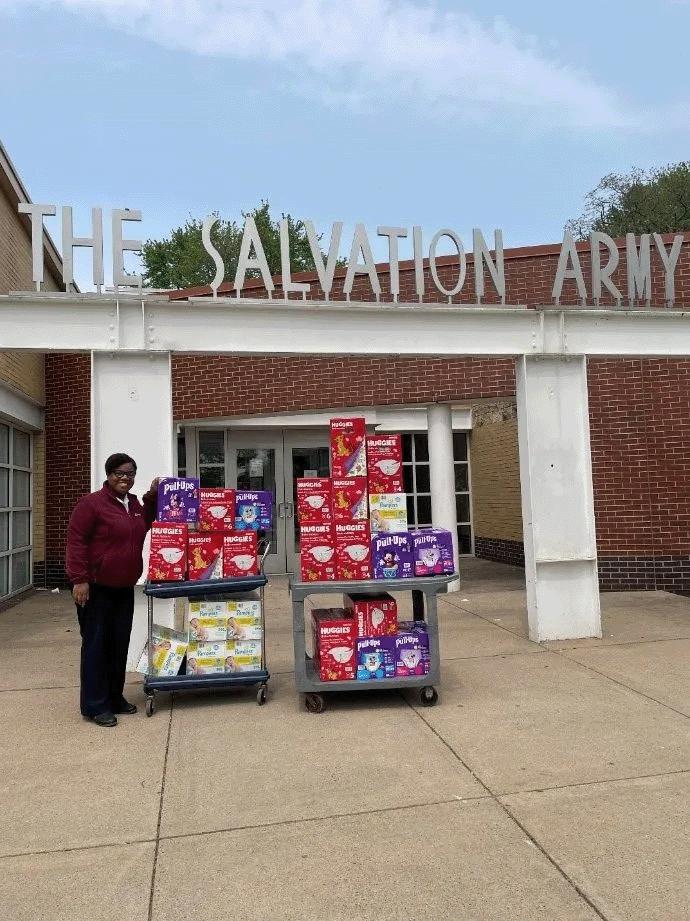“We wanted to learn from experts in sociology and appreciated the opportunity to think about ways this issue interplays with our medical world,” said Barbara Edelheit, MD, Division Head of Rheumatology at Connecticut Children’s and the leader of the PoWER group, which stands for Pediatric Women Relate.
The groups invited Luis Rivera to attend the discussion. Rivera is Connecticut Children’s Community Relations Manager and the Community Action Pillar Lead for Connecticut Children’s Diversity, Equity and Inclusion Framework. He has worked on diaper insecurity as part of his role.
Next, the groups invited the authors of the Diaper Despair and Deflecting Inequalities article to join them in a second discussion about the issue of diaper insecurity. Rivera also joined that discussion.
“We had a wonderful conversation with Drs. Sherman and Randles,” said Dr. Edelheit. “We learned a lot and felt inspired. Following the discussion, we thought about short- and long-term changes we could make to advocate for those with diaper needs.”
The groups discussed hosting a diaper drive. Rivera suggested they donate diapers and wipes to the Salvation Army in Hartford, which is an organization he partnered with to establish a Diaper Connections diaper bank for the Hartford community that is supported by Connecticut Children’s. The groups raised more than $1,000 for diapers and wipes within one week through their diaper drive. After purchasing supplies, they dropped everything off at the Salvation Army to benefit Hartford families in need.
In addition, the groups also discussed longer-term changes they could make at Connecticut Children’s to help families in need. They realized that diapers are often thrown out when babies are weighed at various clinics during appointments and that families may not have another one to spare. To address this, the groups are now working with Connecticut Children’s Specialty Group to ensure diapers are on hand in all clinics, so families don’t have to struggle to supply a spare diaper.
“We may be tossing diapers with an expectation that the parent has another one to spare and we realized that this is an unfair assumption,” said Dr. Edelheit. “We should always provide a diaper when we remove a diaper. We are looking into how this change can be implemented.”
The groups expect to continue their focus on diaper insecurity in the months ahead.


